平衡二叉树
定义
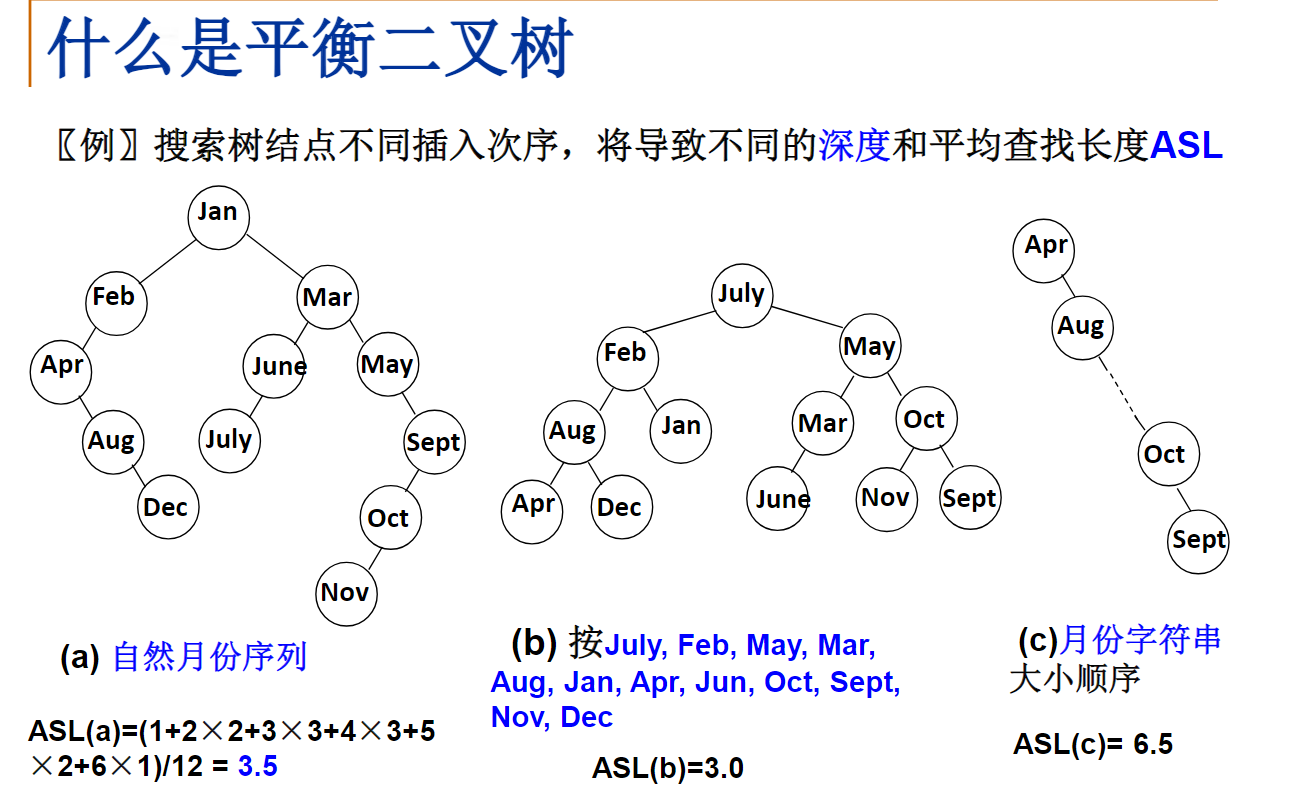
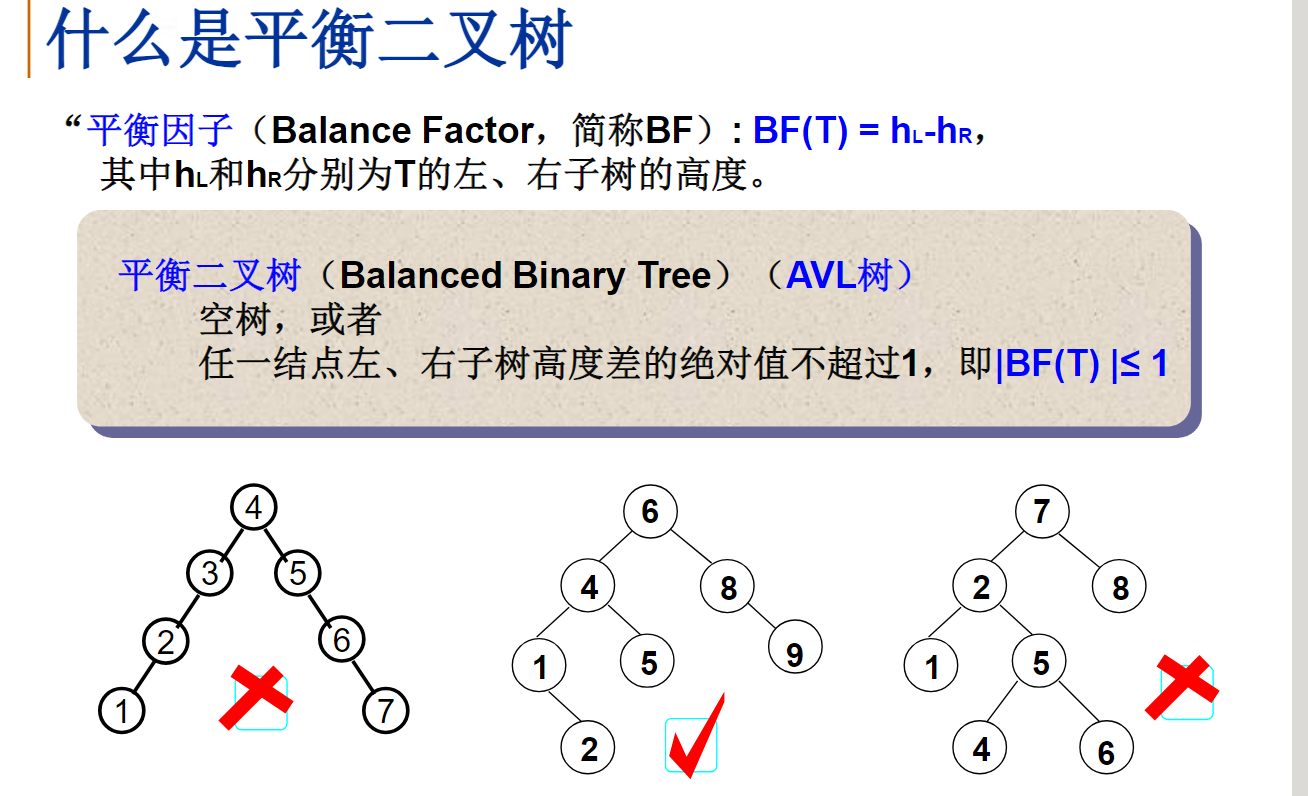
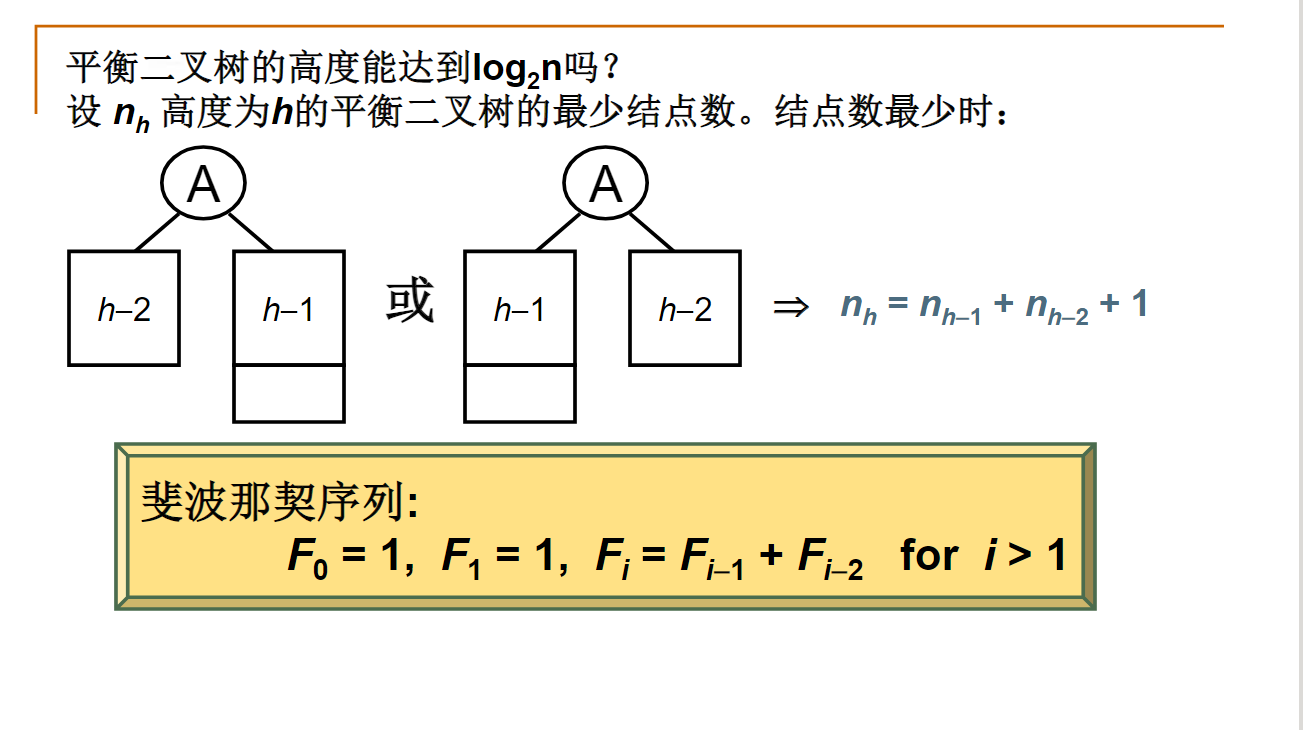
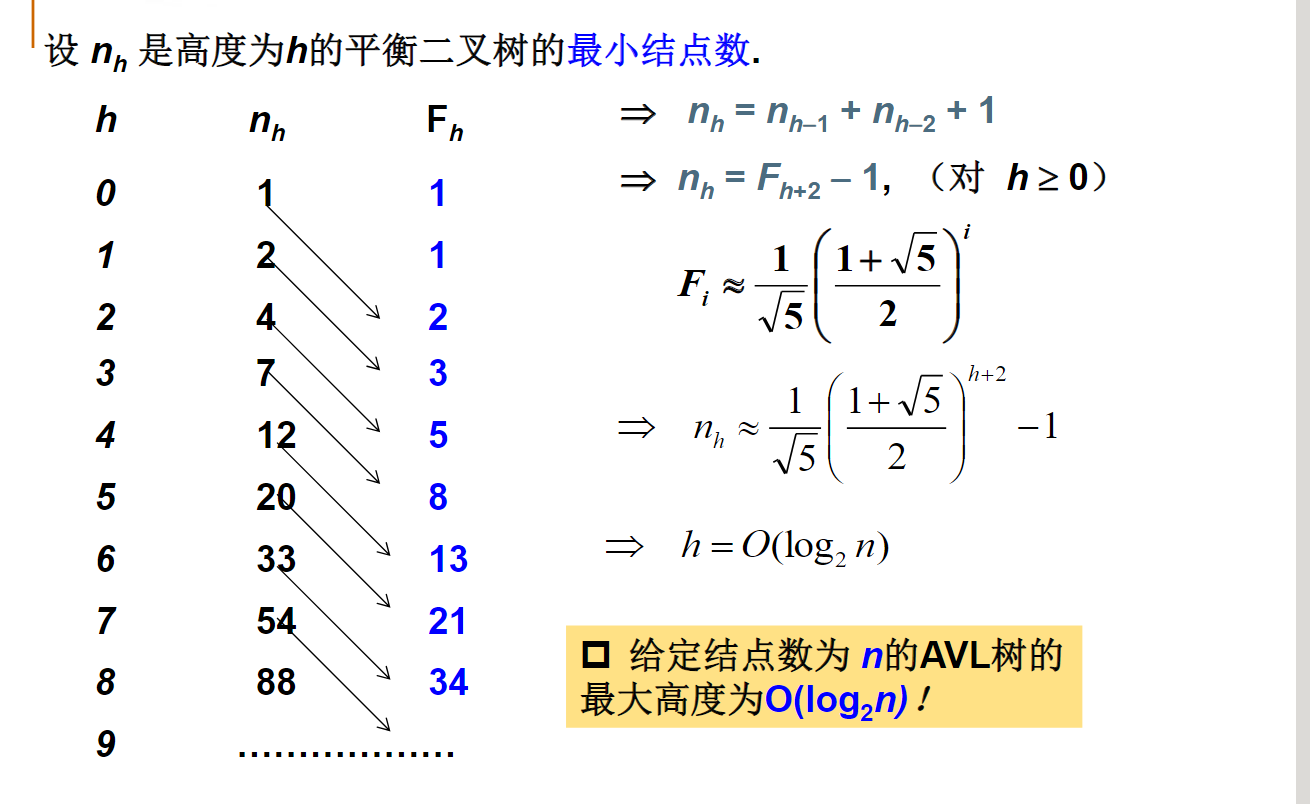
1将1、2、3、4、5、6顺序插入初始为空的AVL树中,当完成这6个元素的插入后,该AVL树共有多少层? 3
2若一AVL树的结点数是21,则该树的高度至多是多少?5
注:只有一个根节点的树高度为0
平衡二叉树的调整
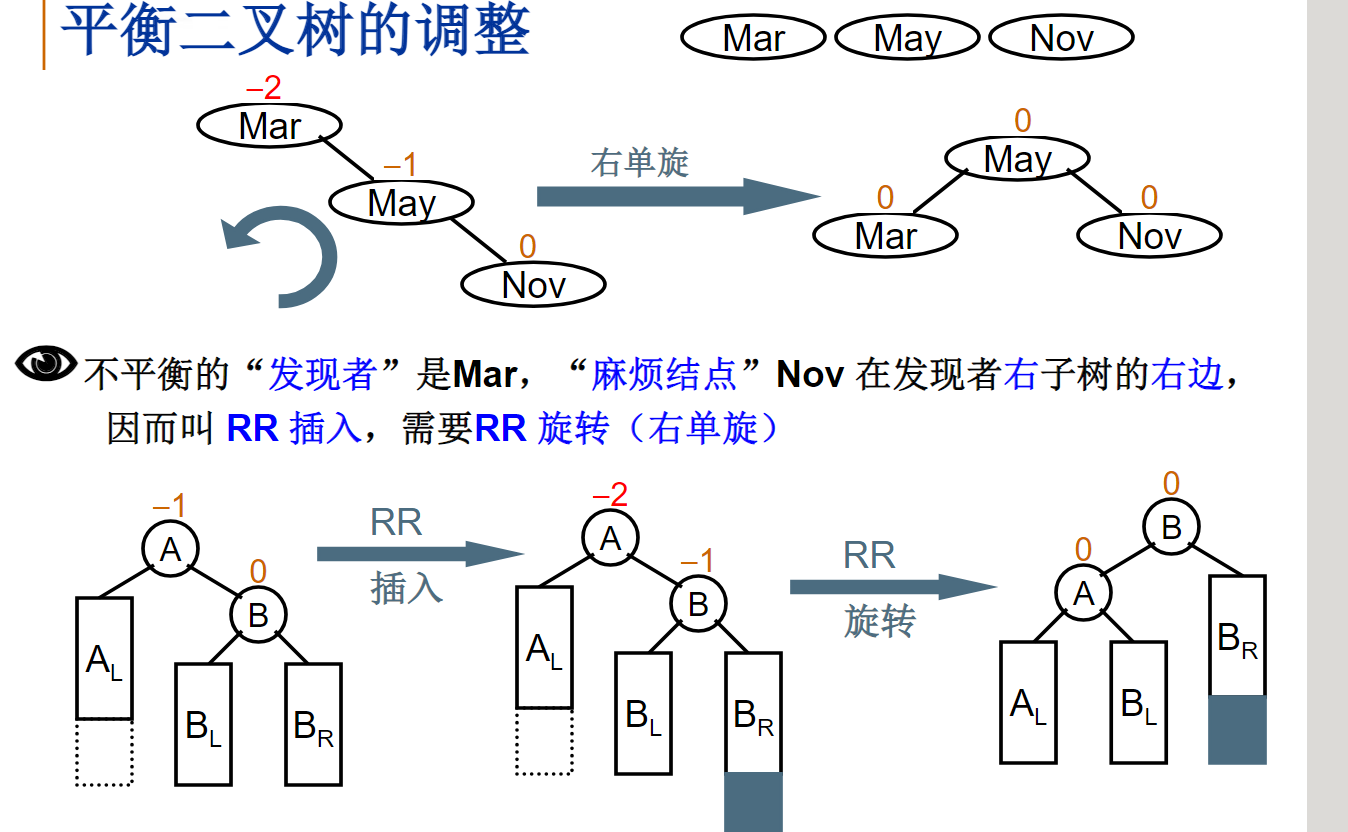
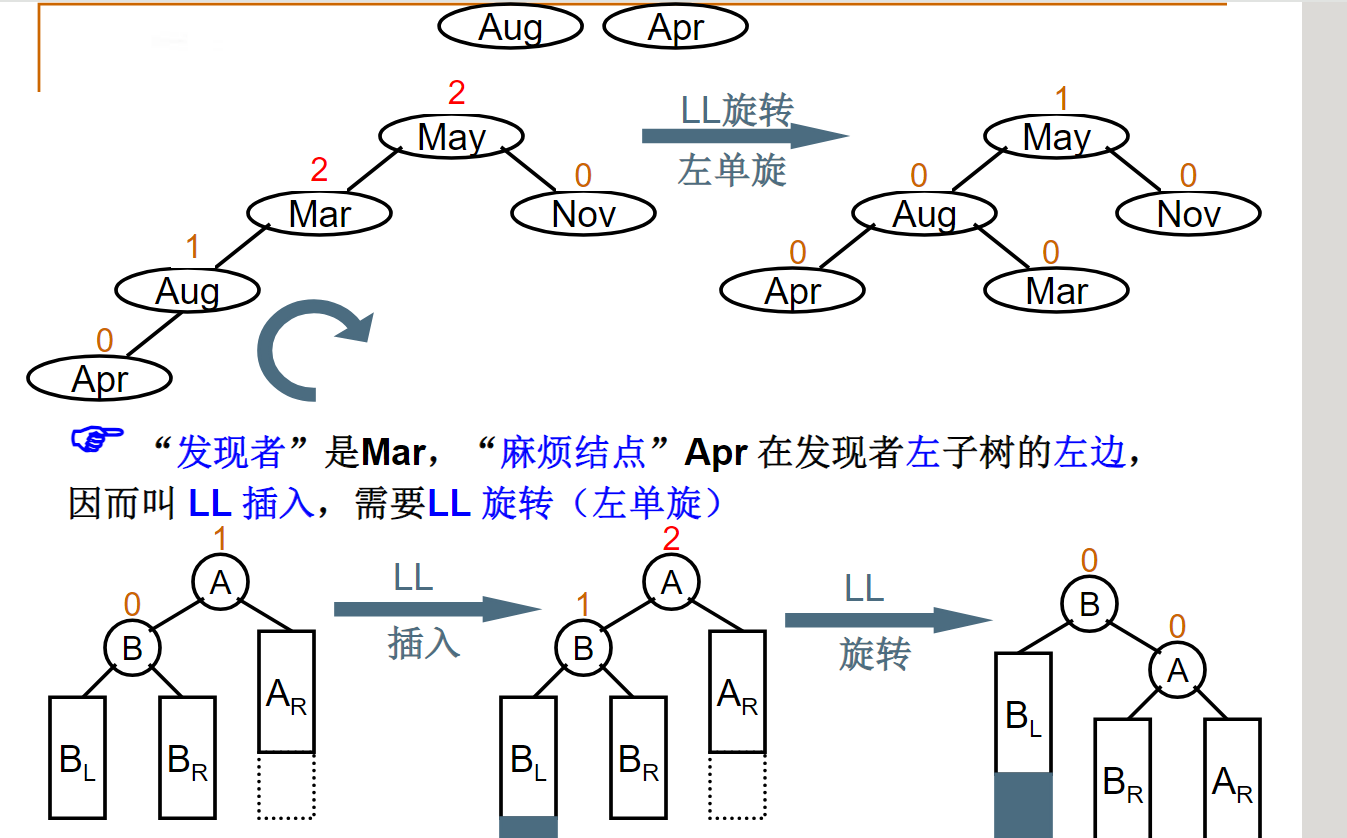
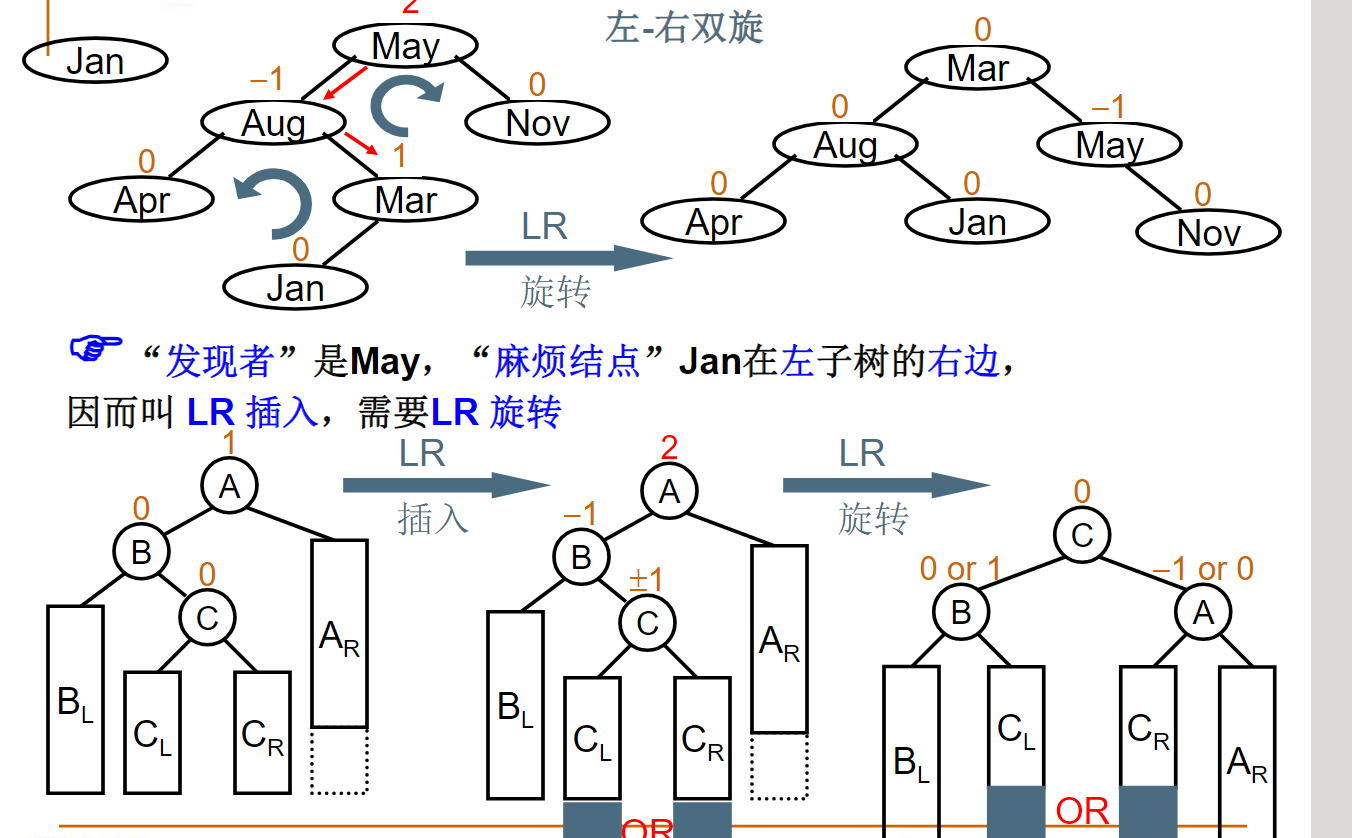
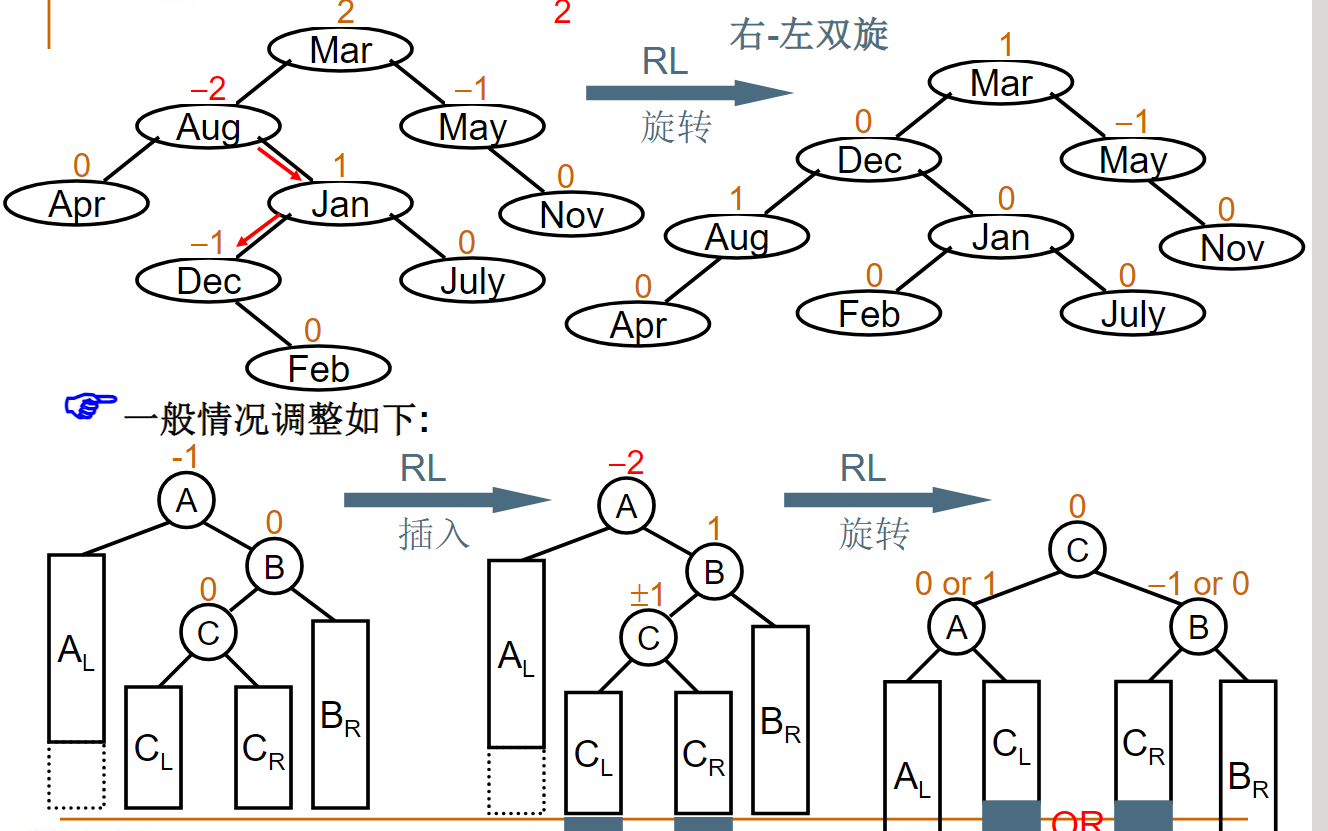
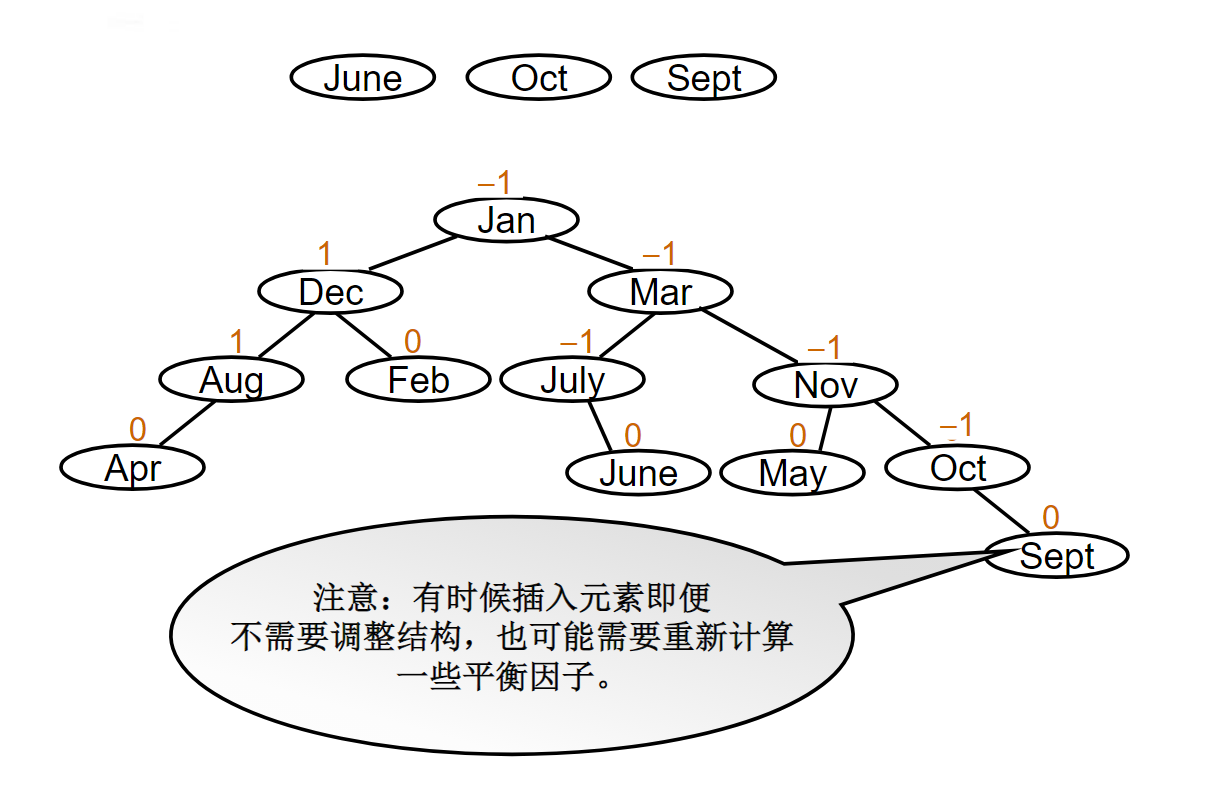
《数据结构》课程给出的代码如下:
typedef struct AVLNode *Position;
typedef Position AVLTree; /* AVL树类型 */
struct AVLNode{
ElementType Data; /* 结点数据 */
AVLTree Left; /* 指向左子树 */
AVLTree Right; /* 指向右子树 */
int Height; /* 树高 */
};
int Max ( int a, int b )
{
return a > b ? a : b;
}
AVLTree SingleLeftRotation ( AVLTree A )
{ /* 注意:A必须有一个左子结点B */
/* 将A与B做左单旋,更新A与B的高度,返回新的根结点B */
AVLTree B = A->Left;
A->Left = B->Right;
B->Right = A;
A->Height = Max( GetHeight(A->Left), GetHeight(A->Right) ) + 1;
B->Height = Max( GetHeight(B->Left), A->Height ) + 1;
return B;
}
AVLTree DoubleLeftRightRotation ( AVLTree A )
{ /* 注意:A必须有一个左子结点B,且B必须有一个右子结点C */
/* 将A、B与C做两次单旋,返回新的根结点C */
/* 将B与C做右单旋,C被返回 */
A->Left = SingleRightRotation(A->Left);
/* 将A与C做左单旋,C被返回 */
return SingleLeftRotation(A);
}
/*************************************/
/* 对称的右单旋与右-左双旋请自己实现 */
/*************************************/
AVLTree Insert( AVLTree T, ElementType X )
{ /* 将X插入AVL树T中,并且返回调整后的AVL树 */
if ( !T ) { /* 若插入空树,则新建包含一个结点的树 */
T = (AVLTree)malloc(sizeof(struct AVLNode));
T->Data = X;
T->Height = 0;
T->Left = T->Right = NULL;
} /* if (插入空树) 结束 */
else if ( X < T->Data ) {
/* 插入T的左子树 */
T->Left = Insert( T->Left, X);
/* 如果需要左旋 */
if ( GetHeight(T->Left)-GetHeight(T->Right) == 2 )
if ( X < T->Left->Data )
T = SingleLeftRotation(T); /* 左单旋 */
else
T = DoubleLeftRightRotation(T); /* 左-右双旋 */
} /* else if (插入左子树) 结束 */
else if ( X > T->Data ) {
/* 插入T的右子树 */
T->Right = Insert( T->Right, X );
/* 如果需要右旋 */
if ( GetHeight(T->Left)-GetHeight(T->Right) == -2 )
if ( X > T->Right->Data )
T = SingleRightRotation(T); /* 右单旋 */
else
T = DoubleRightLeftRotation(T); /* 右-左双旋 */
} /* else if (插入右子树) 结束 */
/* else X == T->Data,无须插入 */
/* 别忘了更新树高 */
T->Height = Max( GetHeight(T->Left), GetHeight(T->Right) ) + 1;
return T;
}
实例 PTA 04-树5 Root of AVL Tree
#include <stdio.h>
#include <stdlib.h>
typedef int ElementType;
typedef struct AVLNode *Position;
typedef Position AVLTree; /* AVL树类型 */
struct AVLNode{
ElementType Data; /* 结点数据 */
AVLTree Left; /* 指向左子树 */
AVLTree Right; /* 指向右子树 */
int Height; /* 树高 */
};
int Max ( int a, int b )
{
return a > b ? a : b;
}
int GetHeight(AVLTree T)
{
if (!T)
return -1;
else
return T->Height;
}
AVLTree SingleLeftRotation ( AVLTree A )
{ /* 注意:A必须有一个左子结点B */
/* 将A与B做左单旋,更新A与B的高度,返回新的根结点B */
AVLTree B = A->Left;
A->Left = B->Right;
B->Right = A;
A->Height = Max( GetHeight(A->Left), GetHeight(A->Right) ) + 1;
B->Height = Max( GetHeight(B->Left), A->Height ) + 1;
return B;
}
AVLTree SingleRightRotation(AVLTree A)//麻烦结点存在右子树的右边
{
AVLTree B=A->Right;
A->Right=B->Left;//右子树的左儿子赋给A的右子树
B->Left=A;//B变成A的父结点
A->Height=Max(GetHeight(A->Left),GetHeight(A->Right))+1;
B->Height=Max(A->Height,GetHeight(B->Right))+1;
return B;
}
AVLTree DoubleRightLeftRotation(AVLTree A)//麻烦结点存在右子树的左边
{
A->Right=SingleLeftRotation(A->Right);
return SingleRightRotation(A);
}
AVLTree DoubleLeftRightRotation ( AVLTree A )
{ /* 注意:A必须有一个左子结点B,且B必须有一个右子结点C */
/* 将A、B与C做两次单旋,返回新的根结点C */
/* 将B与C做右单旋,C被返回 */
A->Left = SingleRightRotation(A->Left);
/* 将A与C做左单旋,C被返回 */
return SingleLeftRotation(A);
}
AVLTree Insert( AVLTree T, ElementType X )
{ /* 将X插入AVL树T中,并且返回调整后的AVL树 */
if ( !T ) { /* 若插入空树,则新建包含一个结点的树 */
T = (AVLTree)malloc(sizeof(struct AVLNode));
T->Data = X;
T->Height = 0;
T->Left = T->Right = NULL;
} /* if (插入空树) 结束 */
else if ( X < T->Data ) {
/* 插入T的左子树 */
T->Left = Insert( T->Left, X);
/* 如果需要左旋 */
if ( GetHeight(T->Left)-GetHeight(T->Right) == 2 )
if ( X < T->Left->Data )
T = SingleLeftRotation(T); /* 左单旋 */
else
T = DoubleLeftRightRotation(T); /* 左-右双旋 */
} /* else if (插入左子树) 结束 */
else if ( X > T->Data ) {
/* 插入T的右子树 */
T->Right = Insert( T->Right, X );
/* 如果需要右旋 */
if ( GetHeight(T->Left)-GetHeight(T->Right) == -2 )
if ( X > T->Right->Data )
T = SingleRightRotation(T); /* 右单旋 */
else
T = DoubleRightLeftRotation(T); /* 右-左双旋 */
} /* else if (插入右子树) 结束 */
/* else X == T->Data,无须插入 */
/* 别忘了更新树高 */
T->Height = Max( GetHeight(T->Left), GetHeight(T->Right) ) + 1;
return T;
}
int main()
{
int n;
scanf("%d",&n);
ElementType X;
AVLTree T = NULL;
for(int i=0; i<n; i++)
{
scanf("%d", &X);
T = Insert(T,X);
}
if(T)
printf("%d",T->Data);
return 0;
}